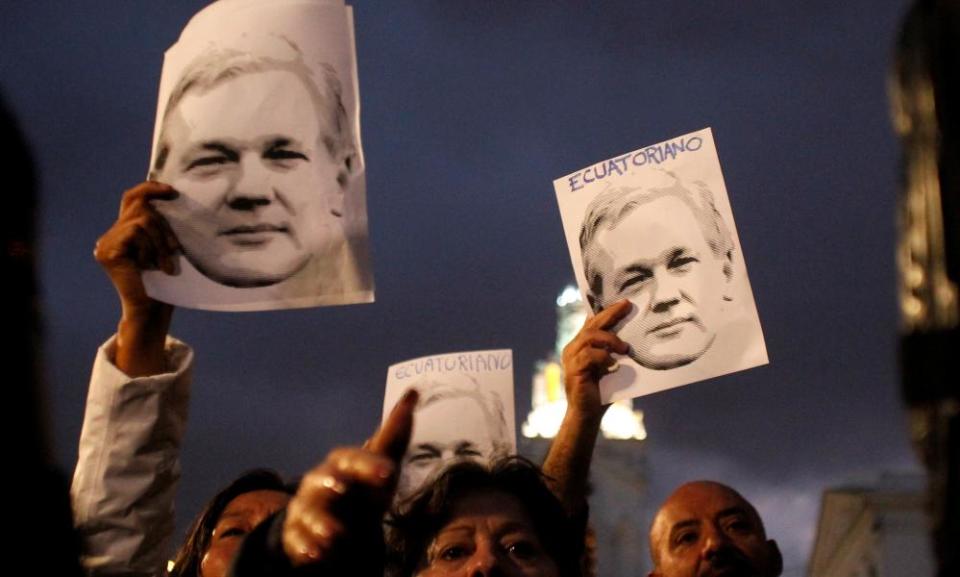Is Julian Assange facing criminal charges in the US?

How do we know Julian Assange has been charged by the US?
We don’t know for sure. But a mistake in a document filed by the US authorities in an unrelated case hints that criminal charges may have been prepared in secret.
What happened?
The text of the court filing, which relates to a completely separate case, includes two mentions of someone called Assange, including a suggestion that the documentation in the case “would need to remain sealed until Assange is arrested in connection with the charges”.
The filing was a motion to seal the charges, meaning they would be kept secret, because “due to the sophistication of the defendant and the publicity around the case, no other procedure is likely to keep confidential the fact that Assange has been charged”.
Why is his name included?
A justice department spokesman would say only that the court filing was “made in error” and that Assange was “not the intended name for this filing”. But legal experts suggested the mistake was made by lawyers copying and pasting text from one document to another, and forgetting to change the name and other details.
What is Assange potentially being charged with?
Again, we don’t know. The US authorities have been investigating the WikiLeaks founder since at least 2011, when a grand jury hearing was opened into the whistleblowing website’s publication the previous year of hundreds of thousands of US diplomatic cables, in conjunction with a number of international newspapers including the Guardian.
WikiLeaks is also under investigation by Robert Mueller, the US special counsel, for publishing a cache of hacked emails from the Democratic party during the 2016 presidential campaign.
The assumption is that any potential charges would be likely to be brought under the US Espionage Act, the same legislation used in the unsuccessful attempt to prosecute Daniel Ellsberg over the Pentagon Papers in 1971.
Any other evidence?
Separately on Thursday, the Wall Street Journal reported that the justice department was preparing to prosecute Assange, and had considered several charges against him, and was increasingly confident it would be able to secure his extradition.
Haven’t they told Assange himself?
No. “The news that criminal charges have apparently been filed against Mr Assange is even more troubling than the haphazard manner in which that information has been revealed,” his US lawyer, Barry Pollack, said, adding that a government bringing criminal charges against someone for publishing truthful information was a “dangerous path for a democracy to take”.
What does this mean for Assange?
Assange remains at the Ecuadorean embassy in London, where he was granted asylum in 2012. An attempt by Sweden to extradite him over allegations of rape and sexual assault foundered last year when prosecutors said they saw no realistic way of proceeding, but he and his supporters have always maintained that he sought asylum in order to avoid extradition to the US. Ecuador has so far resisted attempts to extradite him.

However relations between the WikiLeaks founder and his hosts have deteriorated sharply since last year’s election of President Lenin Moreno, who has previously described Assange as a “stone in the shoe”. Earlier this year Moreno said Assange could stay as long as he agreed to certain conditions, including not intervening in foreign politics, but that the country would “take a decision” if he did not comply.
The country’s former president Rafael Correa said Moreno would “throw [Assange] out of the embassy at the first pressure from the United States”. Assange is currently suing his hosts, arguing that the conditions of his stay violate his “fundamental freedoms”.
What happens next?
Again, it is not clear. We don’t know if the US has already filed an extradition request against Assange with the UK. However the Metropolitan police have previously said he would face immediate arrest if he left the embassy for breaching the terms of his bail conditions when he sought asylum.

 Yahoo News
Yahoo News 